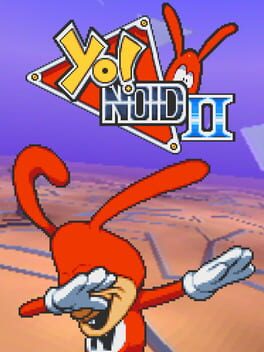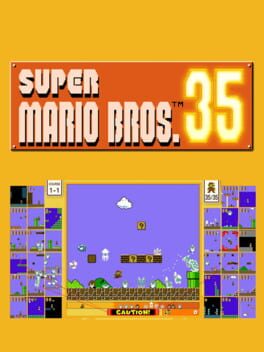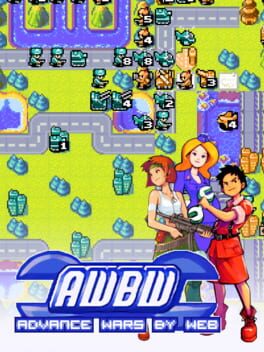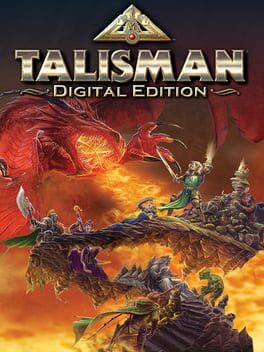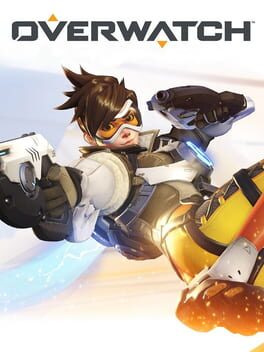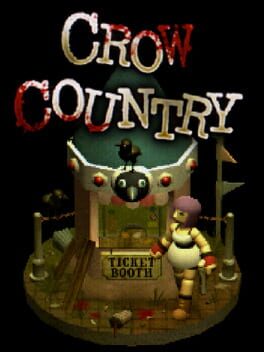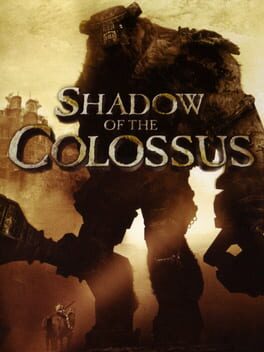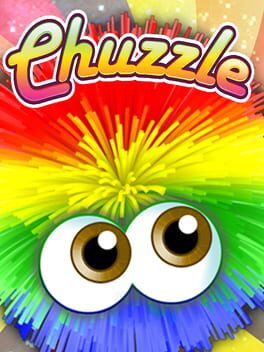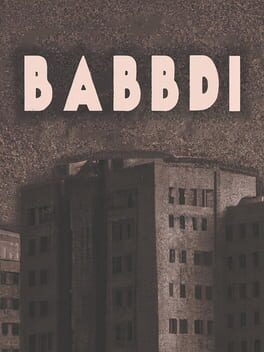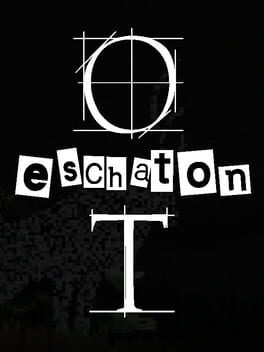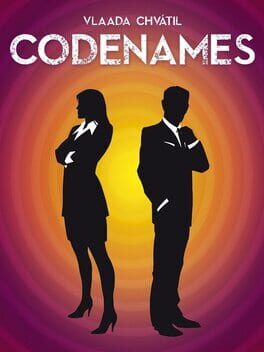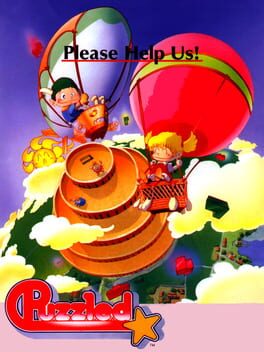Chariot_Rider
2017
As a bit of Dominos humor, it's alright. It's fun seeing the Noid and other Dominos characters have a wacky adventure. As a platformer, I think Yo! Noid 2 is only ok. The movement is a bit more stiff than I'd like, but the real issue is with the level design, which doesn't do a great job at directing players to the ideal path. There were many times when I just had no idea which direction I was supposed to be going, and I think the level design is a big part of that. At the very least, Yo! Noid II is very forgiving with its checkpoints, so even if the game is a bit obtuse, it never becomes tedious. It's a fun little fan project, and I think its worth running through if you want to see the game's humor, or want to see a bite sized platformer.
2024
This is the best cooking game since Steven's Sausage Roll.
Seriously though, Arctic Eggs is great. The cooking gameplay is incredibly intuitive, but tricky to master. It's simply incredibly satisfying.
Arctic Eggs does a great job with its writing. Each person is a vignette, a small snapshot into this strange world. Some horrify, some make me laugh, but everyone has a place. The game hints at broader implications without spelling out all of the details, and the end result is an excellent bit of science fiction.
Fry some eggs.
Seriously though, Arctic Eggs is great. The cooking gameplay is incredibly intuitive, but tricky to master. It's simply incredibly satisfying.
Arctic Eggs does a great job with its writing. Each person is a vignette, a small snapshot into this strange world. Some horrify, some make me laugh, but everyone has a place. The game hints at broader implications without spelling out all of the details, and the end result is an excellent bit of science fiction.
Fry some eggs.
2020
Such a strange take on the Battle Royale, but definitely memorable. Turning the original Mario into a multiplayer battle royale is such a bold move, and the execution is about as good as you could expect. I respect it for the boldness alone.
The idea of spawning enemies for opposing players works really well. It creates moments where you can turn the tides on others by taking your hinderances and turning them into attacks by using a koopa shell to wipe out a ton of enemies and give another player a lot to deal with.
Super Mario Bros 35 is a silly, goofy game that was unlike anything else, and it will probably stay that way. It's a shame it's gone forever.
The idea of spawning enemies for opposing players works really well. It creates moments where you can turn the tides on others by taking your hinderances and turning them into attacks by using a koopa shell to wipe out a ton of enemies and give another player a lot to deal with.
Super Mario Bros 35 is a silly, goofy game that was unlike anything else, and it will probably stay that way. It's a shame it's gone forever.
2004
The best way to play one of the best competitive turn based strategy games.
AWBW actually has a lot of improvements over the original games, like having map designs that eliminate first player advantage, an approach to CO balance that recognizes that the COs aren't balanced at all and addresses this fact by splitting characters into tiers and assigning each game a different tier so players can experience both the high and low end of the tier list, an ELO system so you face roughly equivalent opponents, and an extremely convenient play by mail (through web browser) experience. If it wasn't for Advance Wars by Web, I wouldn't have played this legendary game nearly as much. Anyone who loves Advance Wars, or even just has a fondness for turn based strategy games, should visit this website.
AWBW actually has a lot of improvements over the original games, like having map designs that eliminate first player advantage, an approach to CO balance that recognizes that the COs aren't balanced at all and addresses this fact by splitting characters into tiers and assigning each game a different tier so players can experience both the high and low end of the tier list, an ELO system so you face roughly equivalent opponents, and an extremely convenient play by mail (through web browser) experience. If it wasn't for Advance Wars by Web, I wouldn't have played this legendary game nearly as much. Anyone who loves Advance Wars, or even just has a fondness for turn based strategy games, should visit this website.
2016
This review is a lot like my CSGO review in the sense that I'm writing it about a game that no longer exists, and thus am writing this review exclusively with aid of my years old memories. However, I'd like to document my thoughts on the original Overwatch before they are too overwritten by memories of the sequel, and also I'd like to leave a record that I did play the original.
Overwatch was a super appealing game. I remember playing it at a friend's house during it's pre-release phase, and I remember loving it. The game was clearly inspired by other team based shooters, but it did a great job at making the game feel approachable. Hero abilities were easy to understand, but their depth came from understanding the right time to use it, where to deploy the ability, or just getting better at actually executing the move.
I really liked Overwatch because the characters had a lot of personality. Each character had an appealing design and personality that helped them stand out from the rest of the cast. I remember being so into the characters at the time that I was rewatching trailers and reading the comics to try to think about the lore of the world and how these characters related to each other. The great art extended to the maps as well. Every location feels so fleshed out with cute details that made spaces really fun to explore.
Overwatch was a good game, and I wish that it's original release was preserved in some way. Historians will want to study this game. Perhaps they might want to understand the way that moving from a 6 player team to a 5 player team changed the gameplay, but now that isn't really available to study. It's a shame that multiplayer games are now erasing their prequels to make way for the sequels. Yes, I understand that sequels might create a split playerbases if both games exist alongside each other, but I don't think that justifies destroying a game forever.
Overwatch was a super appealing game. I remember playing it at a friend's house during it's pre-release phase, and I remember loving it. The game was clearly inspired by other team based shooters, but it did a great job at making the game feel approachable. Hero abilities were easy to understand, but their depth came from understanding the right time to use it, where to deploy the ability, or just getting better at actually executing the move.
I really liked Overwatch because the characters had a lot of personality. Each character had an appealing design and personality that helped them stand out from the rest of the cast. I remember being so into the characters at the time that I was rewatching trailers and reading the comics to try to think about the lore of the world and how these characters related to each other. The great art extended to the maps as well. Every location feels so fleshed out with cute details that made spaces really fun to explore.
Overwatch was a good game, and I wish that it's original release was preserved in some way. Historians will want to study this game. Perhaps they might want to understand the way that moving from a 6 player team to a 5 player team changed the gameplay, but now that isn't really available to study. It's a shame that multiplayer games are now erasing their prequels to make way for the sequels. Yes, I understand that sequels might create a split playerbases if both games exist alongside each other, but I don't think that justifies destroying a game forever.
2024
2024
Crow Country is a very decent horror game. I enjoyed it, but there were some aspects that I felt weren't executed perfectly.
The game's presentation is what first caught my attention, and it's really nice. The excellent choice to set the game in a theme park creates a great opportunity to have a lot of fun locales, and the game does a great job at contrasting the jovial amusement park with the decay and horrible creatures that currently inhabit it.
One of my favorite things about Crow Country is how its combat works. To shoot enemies you have to stop your movement and aim in 3D, which is made harder because your character's hand isn't entirely stable and you have to account for that movement, but also many of the enemies have very jittery movement. The bipedal monsters have extremely twitchy torsos so they might end up dodging a bullet if you aren't careful. I can imagine an alternate universe version of this game where the enemies walk like zombies from Resident Evil 1 where they walk straight towards the player without altering their course, and in that version of the game the enemy movement would be too predictable. Having your swaying aim and twitchy enemies gives the combat a sense of unpredictability that really works for a horror game. Your bullets also will deal more damage the closer an enemy is to you, which creates a tense risk reward where you want to wait for enemies to be close so you can save as many bullets as possible, but also that puts you in a risky spot, especially if you happen to miss (which the previously mentioned systems make more likely). The result is combat with some meaty tension. That being said, it's also easy in a lot of situations to just avoid the enemies which maybe isn't ideal.
Unfortunately, the puzzles are my strongest criticism. I don't think all of the puzzles are terrible or anything, but so many of them fall into the camp of "find the note that gives you the code" puzzle design. If you just read the notes littered around the game, you can often just find the answers to a puzzle, which undercuts a lot of the thinking you might have to do. As an example, there is one room where you can shoot fish for points, and you have to get 21 points. That's a puzzle someone could math out, but also there's just a note somewhere else that tells you the literal order you need to shoot the fish to score 21 points, and at that point the puzzle is just a literal shooting gallery test. Not all of the puzzles were terrible, and even at their worst the puzzles were just not all that deep. I was just a bit underwhelmed by the puzzles in this game and would have liked to see some more challenging logical quandaries.
All that being said, I like the story. The story of the amusement park is fun to learn about and the character writing is pretty competent. I'll avoid saying too much about it for people that want to play the game themselves, but the strongest part of the narrative for me was at the very end when the mysterious Mr. Crow explains where the monsters come from. It's an incredible reveal, one that raises a ton of questions and dark implications that I was not expecting, while also tying together some really interesting themes about short sightedness and greed. Like I said, I won't fully explain it in case you want to play the game yourself, but the ending is worth experiencing.
Overall, Crow Country is a really solid game. It has really good combat, a beautiful aesthetic, and a story that perhaps starts with a lot of what you would expect that takes some great swerves into truly horrific implications. I definitely recommend giving it a playthrough, even if the puzzles are a bit weak.
The game's presentation is what first caught my attention, and it's really nice. The excellent choice to set the game in a theme park creates a great opportunity to have a lot of fun locales, and the game does a great job at contrasting the jovial amusement park with the decay and horrible creatures that currently inhabit it.
One of my favorite things about Crow Country is how its combat works. To shoot enemies you have to stop your movement and aim in 3D, which is made harder because your character's hand isn't entirely stable and you have to account for that movement, but also many of the enemies have very jittery movement. The bipedal monsters have extremely twitchy torsos so they might end up dodging a bullet if you aren't careful. I can imagine an alternate universe version of this game where the enemies walk like zombies from Resident Evil 1 where they walk straight towards the player without altering their course, and in that version of the game the enemy movement would be too predictable. Having your swaying aim and twitchy enemies gives the combat a sense of unpredictability that really works for a horror game. Your bullets also will deal more damage the closer an enemy is to you, which creates a tense risk reward where you want to wait for enemies to be close so you can save as many bullets as possible, but also that puts you in a risky spot, especially if you happen to miss (which the previously mentioned systems make more likely). The result is combat with some meaty tension. That being said, it's also easy in a lot of situations to just avoid the enemies which maybe isn't ideal.
Unfortunately, the puzzles are my strongest criticism. I don't think all of the puzzles are terrible or anything, but so many of them fall into the camp of "find the note that gives you the code" puzzle design. If you just read the notes littered around the game, you can often just find the answers to a puzzle, which undercuts a lot of the thinking you might have to do. As an example, there is one room where you can shoot fish for points, and you have to get 21 points. That's a puzzle someone could math out, but also there's just a note somewhere else that tells you the literal order you need to shoot the fish to score 21 points, and at that point the puzzle is just a literal shooting gallery test. Not all of the puzzles were terrible, and even at their worst the puzzles were just not all that deep. I was just a bit underwhelmed by the puzzles in this game and would have liked to see some more challenging logical quandaries.
All that being said, I like the story. The story of the amusement park is fun to learn about and the character writing is pretty competent. I'll avoid saying too much about it for people that want to play the game themselves, but the strongest part of the narrative for me was at the very end when the mysterious Mr. Crow explains where the monsters come from. It's an incredible reveal, one that raises a ton of questions and dark implications that I was not expecting, while also tying together some really interesting themes about short sightedness and greed. Like I said, I won't fully explain it in case you want to play the game yourself, but the ending is worth experiencing.
Overall, Crow Country is a really solid game. It has really good combat, a beautiful aesthetic, and a story that perhaps starts with a lot of what you would expect that takes some great swerves into truly horrific implications. I definitely recommend giving it a playthrough, even if the puzzles are a bit weak.
Shadow of the Colossus still displays Ueda's signature approach to minimalist and subtractive design, and it benefits greatly from that still. There’s a lot I still love about Shadow of the Colossus. The character dialogue is excellent at painting a picture of this haunting world and the characters within it, suggesting character motivations and themes to chew on.
I love the narrative setup of Shadow of the Colossus. A man, Wander, has come to a forbidden place bearing the body of a seemingly dead woman. He wants to heal her, and in his quest he gets the direction of a mysterious entity who tells him to slay the colossi that roam the land. Immediately this setup suggests a lot of really compelling themes. There is the contrast between life and death, or life that comes about through death. If Ico is a game about the strengths of human bonds, SotC asks what people will do to restore bonds they have lost, and the price that can come with that. And the game pays all of this off really well with its conclusion. I won’t spoil its ending, but it brings these ideas and themes which have been simmering over the course of the game to a close.
In between it’s exceptional start and end, is a middle which is good, but feels like a lot. Maybe it’s a bit absurd to complain about the size of an adventure in a game literally about confronting foes of gigantic proportions. I certainly felt the size of the adventure! Where Ico was very compact, very tight, SotC has you fight 16 of these giants, and the structure doesn’t really change in between each one. The voice tells you to kill a beast, you ride across the land to find its lair, you kill it, and then you repeat. This is the structure of the game, and it doesn’t deviate from this path for a single moment. I found that this made the pace drag a bit. Where Ico would have you bounce between combat, exploration, platforming, and puzzles very regularly, SotC has riding to the fight, maybe hunting some lizards or exploring parts of the environment, and then doing a fight. I just found it a bit more tiring, which again, maybe that’s the point. Still, maybe if the game was slightly shorter I’d be more inclined to replay it.
The world itself is still lovely and haunting. The Forgotten Lands are gorgeous and full of nature, but there is a history etched into the rocks. You can only observe fragments of old structures, with very little ability to comprehend their original purpose and meaning. The land can’t be understood, but its atmosphere is felt.
The battles are also memorable. Each is unique, with their own personality, and that lends itself to a very unique form of puzzle combat where defeating a Colossi isn’t about matching their raw strength, but in outsmarting and outlasting them.
There is a lot to love about Shadow of the Colossus. Its narrative setup injects this adventure with such potent and complex themes that leave players with few simple answers. To play Shadow of the Colossus is to accept that it won’t be an easy experience, not just with the gameplay but in the questions the game forces you to answer. I have immense respect for it, even if the compact beauty of Ico is just slightly more to my own personal taste, but honestly, after writing this I could maybe convince myself that Shadow of the Colossus is the better game. Maybe.
I love the narrative setup of Shadow of the Colossus. A man, Wander, has come to a forbidden place bearing the body of a seemingly dead woman. He wants to heal her, and in his quest he gets the direction of a mysterious entity who tells him to slay the colossi that roam the land. Immediately this setup suggests a lot of really compelling themes. There is the contrast between life and death, or life that comes about through death. If Ico is a game about the strengths of human bonds, SotC asks what people will do to restore bonds they have lost, and the price that can come with that. And the game pays all of this off really well with its conclusion. I won’t spoil its ending, but it brings these ideas and themes which have been simmering over the course of the game to a close.
In between it’s exceptional start and end, is a middle which is good, but feels like a lot. Maybe it’s a bit absurd to complain about the size of an adventure in a game literally about confronting foes of gigantic proportions. I certainly felt the size of the adventure! Where Ico was very compact, very tight, SotC has you fight 16 of these giants, and the structure doesn’t really change in between each one. The voice tells you to kill a beast, you ride across the land to find its lair, you kill it, and then you repeat. This is the structure of the game, and it doesn’t deviate from this path for a single moment. I found that this made the pace drag a bit. Where Ico would have you bounce between combat, exploration, platforming, and puzzles very regularly, SotC has riding to the fight, maybe hunting some lizards or exploring parts of the environment, and then doing a fight. I just found it a bit more tiring, which again, maybe that’s the point. Still, maybe if the game was slightly shorter I’d be more inclined to replay it.
The world itself is still lovely and haunting. The Forgotten Lands are gorgeous and full of nature, but there is a history etched into the rocks. You can only observe fragments of old structures, with very little ability to comprehend their original purpose and meaning. The land can’t be understood, but its atmosphere is felt.
The battles are also memorable. Each is unique, with their own personality, and that lends itself to a very unique form of puzzle combat where defeating a Colossi isn’t about matching their raw strength, but in outsmarting and outlasting them.
There is a lot to love about Shadow of the Colossus. Its narrative setup injects this adventure with such potent and complex themes that leave players with few simple answers. To play Shadow of the Colossus is to accept that it won’t be an easy experience, not just with the gameplay but in the questions the game forces you to answer. I have immense respect for it, even if the compact beauty of Ico is just slightly more to my own personal taste, but honestly, after writing this I could maybe convince myself that Shadow of the Colossus is the better game. Maybe.
2006
Chuzzle is an extremely ok puzzle game. It's a match 3 style game where you drag rows to complete sets of colored chuzzles. You can identify moves that will cause combos when chuzzles of different colors fall into place, but in this case it feels like those matches are very incidental and reliant on the game spawning the right colors of chuzzle. Its not unenjoyable to make these combos, but rounds can go on for so long that the gameplay loop becomes a bit tiresome. My first run of Chuzzle lasted for 80 minutes, and admittedly I'm not the fastest player but by the end of that 80 minutes I was very ready for things to be over. I think part of the issue is that I don't find its loss condition to be very compelling. It's the same loss condition that Bejeweled uses, where a game is over once you can't make any more moves. It makes sense, and in Bejeweled it's easier to end up in a no move situation, but its not exactly a loss condition that has a lot of tension. It doesn't have the slowly encroaching doom of something like Tetris of Zuma. Chuzzle does gradually lock up your chuzzles, preventing you from moving certain rows and columns. That does add some tension back to the game, but it's a threat that can be worked around by making certain matches.
Overall, I think Chuzzle its fine, as in its not unenjoyable. It has some fun twists on this style of game, and some of its ideas are pretty neat. It's worth a play if you are into puzzle games if you can get it cheap.
Overall, I think Chuzzle its fine, as in its not unenjoyable. It has some fun twists on this style of game, and some of its ideas are pretty neat. It's worth a play if you are into puzzle games if you can get it cheap.
2022
Babbdi is a beautiful expression about the beauty and tragedy of decay. Everyone in this game feels stuck. An old lady struggles with her groceries, clearly overencumbered. She never moves. The architecture itself is her enemy. Everyone here is stuck, and it impacts everyone differently, and everyone copes in their own way.
The architectural stylings of Babbdi are spectacular. This game nails the aura of brutalism, with its towering concrete structures that feel imposing. Its a projection of power, not in opulence, but in raw geometric forms. Personally, I love brutalist architecture because I never entirely know how it makes me feel. I can't flatly say it's pleasant, nor can I say that its entirely dislikable, and thus I am constantly navigating my own thoughts on this artistic style that fill me with awe and dread and amazement and sadness. Babbdi is perhaps the greatest expression of brutalism ever put into a video game. Because I am fascinated by brutalism, the world of Babbdi speaks powerfully to me. The city feels huge, but not repetitive. Every corner of this place feels like its own thing, which is remarkable when you consider how much of this world is made out of concrete.
Part of why these spaces feel so memorable is the game's item system. You can only carry one item at a time, and while there are useful movement items you can find, you can only carry one at a time. I found myself swapping to new equipment all the time, and each one opened up new opportunities to traverse these spaces in their own way. It makes the joys of exploration so satisfying, because you want to find all of the cool movement items, and once you get some powerful tech, you have a greater ability to explore the intriguing nooks and crannies that caught your attention before you could reach them.
Babbdi is a game about hope, longing, struggle, and the price of these things, and I highly encourage playing this game.
The architectural stylings of Babbdi are spectacular. This game nails the aura of brutalism, with its towering concrete structures that feel imposing. Its a projection of power, not in opulence, but in raw geometric forms. Personally, I love brutalist architecture because I never entirely know how it makes me feel. I can't flatly say it's pleasant, nor can I say that its entirely dislikable, and thus I am constantly navigating my own thoughts on this artistic style that fill me with awe and dread and amazement and sadness. Babbdi is perhaps the greatest expression of brutalism ever put into a video game. Because I am fascinated by brutalism, the world of Babbdi speaks powerfully to me. The city feels huge, but not repetitive. Every corner of this place feels like its own thing, which is remarkable when you consider how much of this world is made out of concrete.
Part of why these spaces feel so memorable is the game's item system. You can only carry one item at a time, and while there are useful movement items you can find, you can only carry one at a time. I found myself swapping to new equipment all the time, and each one opened up new opportunities to traverse these spaces in their own way. It makes the joys of exploration so satisfying, because you want to find all of the cool movement items, and once you get some powerful tech, you have a greater ability to explore the intriguing nooks and crannies that caught your attention before you could reach them.
Babbdi is a game about hope, longing, struggle, and the price of these things, and I highly encourage playing this game.
2022
The most interesting things about Escaton are easy to miss. There are some interesting environmental details to pick up on that aren't immediately obvious, like how each of the figures you find is also represented in a painting inside the mansion, or how the painting by the lake changes after the horses rise from the water, reflecting the new state of the lake.
The sound design is also really good. The most unsettling moments in this game are carried by the audio, which genuinely got under my skin at points. It really helps carry the game's atmosphere.
If you want a vibe, this is an alright game to check out. The actual plot left me a bit confused. I think I follow what happened, but I am not entirely sure what it means, or what I as the player am supposed to take away from it. Pretty much all of the dialogue in the game is spoken in riddles about philosophy and existence, and that sort of writing can work pretty well in concert in a larger work, but for a short game like this I find there isn't quite enough to contextualize it. I didn't really get the writing, and even now its hard for me to remember the proverbs. I still enjoyed the game, though I think its strongest as a mood piece, or as an exploration in level design. Its worth looking into if you can snag it on sale.
The sound design is also really good. The most unsettling moments in this game are carried by the audio, which genuinely got under my skin at points. It really helps carry the game's atmosphere.
If you want a vibe, this is an alright game to check out. The actual plot left me a bit confused. I think I follow what happened, but I am not entirely sure what it means, or what I as the player am supposed to take away from it. Pretty much all of the dialogue in the game is spoken in riddles about philosophy and existence, and that sort of writing can work pretty well in concert in a larger work, but for a short game like this I find there isn't quite enough to contextualize it. I didn't really get the writing, and even now its hard for me to remember the proverbs. I still enjoyed the game, though I think its strongest as a mood piece, or as an exploration in level design. Its worth looking into if you can snag it on sale.
2020
Codenames is a fun game that really emphasizes lateral thinkers who can make unique connections between words, and risk takers who trust their team to put the pieces together. There's a lot of really interesting social play where you not only need to think of clues that connect many words, but also that your teammates would understand, and that also avoid drawing undesirable connections.
One of the arguable downsides of Codenames when compared to other multiplayer games is that you can't really do much actual communicating with the other players. The codemasters can't talk because anything they say could be seen as a clue, and often you don't want to talk when it isn't your turn as the guesser because you don't want to give ideas to your opponents. So, on the sociability scale for games that might be played at parties, this isn't very high. Where something like Secret Hitler forces interaction between all players, Codenames encourages (or for the codemasters requires) you to play all of your information as closely to your chest as possible. Strategically this lends the game a lot of depth, but it makes it slightly less appealing for some people who want to socialize with others during their games. Still, this is an undeniably fun time.
One of the arguable downsides of Codenames when compared to other multiplayer games is that you can't really do much actual communicating with the other players. The codemasters can't talk because anything they say could be seen as a clue, and often you don't want to talk when it isn't your turn as the guesser because you don't want to give ideas to your opponents. So, on the sociability scale for games that might be played at parties, this isn't very high. Where something like Secret Hitler forces interaction between all players, Codenames encourages (or for the codemasters requires) you to play all of your information as closely to your chest as possible. Strategically this lends the game a lot of depth, but it makes it slightly less appealing for some people who want to socialize with others during their games. Still, this is an undeniably fun time.
TBD
An all time classic social deduction game. It really is remarkable just how much great social tension and deduction this game can generate with such a simple ruleset. It's always a fun time with friends, and it's easy to see why it's so popular.
As a digital adaptation, Secret Hitler makes the jump perfectly. While physical pieces are nice, the core of Secret Hitler is in the socialization and deduction, and that is still present even without the physical pieces. The game works remarkably well, and this simple but effective adaptation makes it really convenient to play with online friends.
As a digital adaptation, Secret Hitler makes the jump perfectly. While physical pieces are nice, the core of Secret Hitler is in the socialization and deduction, and that is still present even without the physical pieces. The game works remarkably well, and this simple but effective adaptation makes it really convenient to play with online friends.
1990
I reviewed Puzzled as day 4 of my Arcade a Day series. My full review can be found below.
https://arcadedaily.wordpress.com/2024/01/04/puzzled-joy-joy-kid/
https://arcadedaily.wordpress.com/2024/01/04/puzzled-joy-joy-kid/
